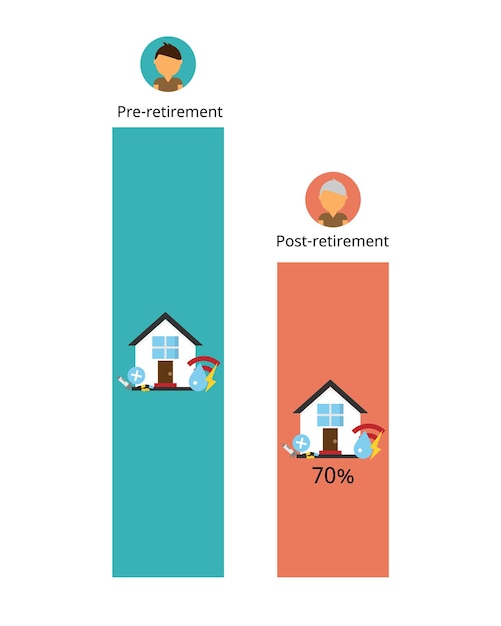FHA Announces Lower Mortgage Insurance Premiums: What It Means for You

The Federal Housing Administration (FHA) recently announced a reduction in its mortgage insurance premiums (MIP), a move expected to make homeownership more affordable for first-time buyers and those with lower credit scores.
The Federal Housing Administration (FHA) Announces Lower Mortgage Insurance Premiums, a decision poised to reshape the landscape for aspiring homeowners. This policy shift aims to alleviate some of the financial burden traditionally associated with FHA loans.
Understanding the FHA Mortgage Insurance Premium (MIP) Reduction
The Federal Housing Administration (FHA) has long been a cornerstone for homebuyers, particularly those with limited savings or less-than-perfect credit. A key component of FHA loans is the mortgage insurance premium (MIP), which protects lenders against losses if a borrower defaults. Recently, the FHA announced a reduction in its MIP, prompting significant discussion across the housing market.
What is Mortgage Insurance Premium (MIP)?
Mortgage insurance premium (MIP) provides a safety net for lenders, mitigating risks associated with borrowers who might have a higher probability of default. It’s important to understand that there are two types of MIP for most FHA loans: an upfront MIP and an annual MIP that’s paid monthly.
Why Reduce MIP?
The decision to reduce MIP is rooted in a desire to make homeownership more accessible, especially for first-time buyers and lower-income households. By lowering the cost of borrowing, the FHA hopes to stimulate homeownership and provide more opportunities for families to build wealth. The agency believes that a strong housing market benefits the entire economy.

- 🏠 **Increased Affordability:** Reduced MIP translates to lower monthly mortgage payments, making homeownership more attainable.
- 📈 **Stimulated Housing Market:** Lower borrowing costs can spur increased demand in the housing market.
- 👨👩👧👦 **Opportunities for Families:** More families, especially those with lower incomes, can realize the dream of owning a home.
- 🛡️ **Economic Benefits:** A stronger housing market can contribute to overall economic stability and growth.
Ultimately, the FHA’s decision to reduce MIP is a strategic move aimed at bolstering homeownership and economic growth by making housing more affordable for a broader range of Americans.
Who Benefits Most from Lower FHA Mortgage Insurance Premiums?
The reduction in FHA mortgage insurance premiums (MIP) is not a one-size-fits-all benefit. Certain groups of homebuyers stand to gain more than others from this policy change. Understanding who benefits most can help potential buyers assess the impact on their specific circumstances.
First-Time Homebuyers
First-time homebuyers are a primary target of this MIP reduction. These individuals often have limited savings and may be navigating the complexities of the housing market for the first time. Lower MIP rates reduce the initial financial burden, making it easier to enter homeownership.
Lower-Income Households
Lower-income households typically struggle with affordability when it comes to purchasing a home. The reduced MIP can significantly decrease monthly mortgage payments, bringing homeownership within reach for families who previously couldn’t afford it. This change can be particularly impactful in areas with high housing costs.

- ✅ **Improved Affordability:** Monthly mortgage payments become more manageable.
- 🔑 **Easier Access to Homeownership:** More people can qualify for a home loan.
- 💰 **Increased Savings:** Reduced payments free up funds for other essential needs.
- 🏡 **Financial Stability:** Homeownership provides a foundation for long-term financial security.
In essence, the MIP reduction aims to level the playing field, providing greater opportunities for those who have historically faced barriers to homeownership. By targeting these specific groups, the FHA hopes to foster a more equitable and accessible housing market.
The Impact of Lower MIP on the Housing Market
The FHA’s decision to lower mortgage insurance premiums (MIP) is expected to have a ripple effect throughout the housing market. This impact goes beyond individual homebuyers, influencing broader market dynamics and potentially affecting various stakeholders.
Increased Demand
With lower borrowing costs, more people are likely to enter the housing market. This increased demand can lead to greater competition for available properties, potentially driving up home prices. However, the overall effect on demand will also depend on other factors, such as prevailing interest rates and economic conditions.
Potential Price Increases
As demand rises, home prices may experience upward pressure. This is particularly true in markets with limited housing inventory. While price increases can benefit sellers, they may also offset some of the affordability gains from the MIP reduction, especially if prices rise significantly.
Lender Considerations
Lenders must adapt to the changing landscape. While lower MIP reduces the cost for borrowers, it also slightly decreases lenders’ protection against default. This may prompt some lenders to tighten lending standards to mitigate potential risks.
- 📈 **Market Dynamics:** Monitor how the MIP reduction affects demand and prices in different regions.
- 📊 **Data Analysis:** Track key indicators such as home sales, inventory levels, and mortgage rates.
- 🤝 **Stakeholder Engagement:** Engage with lenders, real estate professionals, and policymakers to understand their perspectives and concerns.
- 📰 **Transparency:** Communicate clearly about the potential impacts of the MIP reduction.
In summary, while the lower MIP can stimulate the housing market by boosting demand, its long-term impact will depend on a complex interplay of factors, including market dynamics, lender behavior, and overall economic conditions.
Potential Risks and Downsides of the FHA’s Decision
While the reduction in FHA mortgage insurance premiums (MIP) is generally viewed positively, it’s important to acknowledge the potential risks and downsides associated with this policy change. A balanced perspective requires examining these potential drawbacks.
Increased Risk for Lenders
Lower MIP rates mean less protection for lenders against borrower defaults. This increased risk could prompt some lenders to tighten their lending standards, making it more difficult for certain borrowers to qualify for a loan. Lenders may also increase interest rates to offset the reduced MIP coverage.
Potential for Higher Default Rates
By making homeownership more accessible to a wider range of borrowers, there’s a possibility of higher default rates, especially if economic conditions worsen. Borrowers with lower credit scores or limited savings are inherently more vulnerable to financial hardships that could lead to foreclosure.
- ⚖️ **Balancing Act:** Striking a balance between access and risk is crucial.
- 🛡️ **Education and Counseling:** Providing borrowers with financial literacy and counseling can help them manage their finances and reduce the risk of default.
- 🏘️ **Sustainable Homeownership:** Promoting responsible borrowing and homeownership practices is essential.
- 🏛️ **Ongoing Monitoring:** Continuously monitoring the performance of FHA loans and adjusting policies as needed can help mitigate potential risks.
In conclusion, while the reduced MIP aims to promote homeownership, it also introduces potential risks that must be carefully managed. By acknowledging these challenges and implementing appropriate safeguards, the FHA can work towards a more sustainable and equitable housing market.
How to Take Advantage of the Lower FHA Mortgage Insurance Premiums
Now that the FHA has announced lower mortgage insurance premiums (MIP), prospective homebuyers need to know how to take advantage of this opportunity. Strategic planning and careful preparation are key to maximizing the benefits of this policy change.
Get Pre-Approved
Before starting your home search, get pre-approved for an FHA loan. This will give you a clear understanding of how much you can afford and demonstrate to sellers that you’re a serious buyer. Pre-approval also allows you to lock in a favorable interest rate, protecting you from potential rate increases.
Improve Your Credit Score
While FHA loans are more forgiving than conventional loans when it comes to credit scores, improving your credit score can still make a significant difference. A higher credit score can qualify you for a lower interest rate, saving you money over the life of the loan.
Shop Around for the Best Rates
Don’t settle for the first loan offer you receive. Shop around and compare rates from multiple lenders. This will help you find the most competitive terms and ensure that you’re getting the best possible deal. Consider working with a mortgage broker who can help you navigate the options.
- 📝 **Gather Financial Documents:** Collect all necessary financial documents, such as pay stubs, tax returns, and bank statements.
- 👨🏫 **Seek Professional Advice:** Consult with a real estate agent and a mortgage advisor to get expert guidance.
- 🏘️ **Explore Available Properties:** Research properties that fit your budget and needs.
- ✅ **Be Prepared to Act Quickly:** In a competitive market, be ready to make an offer when you find the right home.
By following these steps, prospective homebuyers can effectively leverage the lower FHA mortgage insurance premiums to achieve their homeownership goals. Taking a proactive and informed approach is essential to navigating the complexities of the housing market and securing the best possible outcome.
Comparing FHA Loans with Conventional Loans After the MIP Reduction
With the reduction in FHA mortgage insurance premiums (MIP), it’s crucial to compare FHA loans with conventional loans to determine which option is best suited for individual circumstances. Each type of loan has its own set of advantages and disadvantages.
FHA Loans: Pros and Cons
FHA loans are known for their lower down payment requirements and more lenient credit score criteria, making them accessible to a wider range of borrowers. However, they require both upfront and annual MIP, which can add to the overall cost of the loan. The reduced MIP makes FHA loans even more attractive, but it’s still important to weigh the pros and cons carefully.
Conventional Loans: Pros and Cons
Conventional loans typically require a higher down payment and a stronger credit score. However, borrowers with excellent credit and a substantial down payment can often secure a lower interest rate with a conventional loan. Additionally, conventional loans do not require mortgage insurance once the borrower reaches 20% equity in the home.
- 💰 **Down Payment:** How much can you afford to put down?
- 📊 **Credit Score:** What is your current credit score?
- ⚖️ **Long-Term Costs:** What are the total costs of each loan type over the life of the loan?
- 🏡 **Eligibility:** Do you meet the eligibility requirements for each loan type?
Ultimately, the choice between an FHA loan and a conventional loan depends on individual circumstances and financial goals. It’s essential to carefully evaluate the pros and cons of each option and seek professional advice to make an informed decision.
| Key Point | Brief Description |
|---|---|
| 🏠 MIP Reduction | FHA lowers mortgage insurance premiums to make homeownership more affordable. |
| ✅ Who Benefits | First-time homebuyers and lower-income households benefit the most from this change. |
| 📈 Market Impact | Expect increased demand and potential price increases in the housing market. |
| 🛡️ Potential Risks | Lenders face increased risk; higher default rates are possible. |
Frequently Asked Questions
▼
Mortgage insurance premium (MIP) is an insurance policy that protects lenders against losses if a borrower defaults on their mortgage. It is required for most FHA loans.
▼
The MIP reduction lowers the amount you pay each month, making your mortgage more affordable. Consult with your lender to see the exact savings based on your loan amount.
▼
The MIP reduction is subject to change based on FHA policy. Stay informed about any updates or changes to the mortgage insurance premiums.
▼
Contact an FHA-approved lender to apply for an FHA loan. They will guide you through the application process and explain the terms and conditions.
▼
Yes, you can refinance your existing FHA loan to benefit from the lower MIP. Evaluate your options and consult with your lender to determine if refinancing is the right choice.
Conclusion
The Federal Housing Administration’s (FHA) decision to lower mortgage insurance premiums (MIP) marks a significant step towards making homeownership more accessible and affordable for a wider range of Americans. While the change brings numerous benefits, including increased affordability and stimulation of the housing market, it’s essential to consider potential risks and ensure responsible lending practices. By understanding the implications of this policy shift and taking strategic action, prospective homebuyers can effectively leverage the lower MIP to achieve their homeownership dreams.
